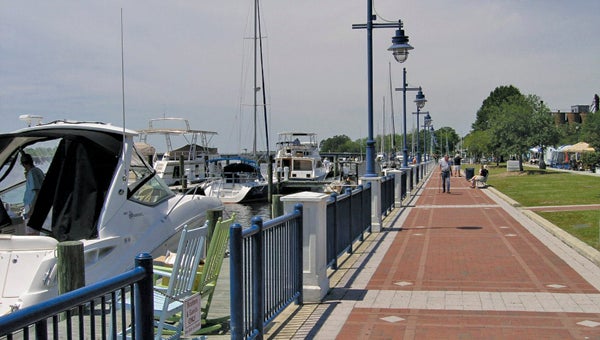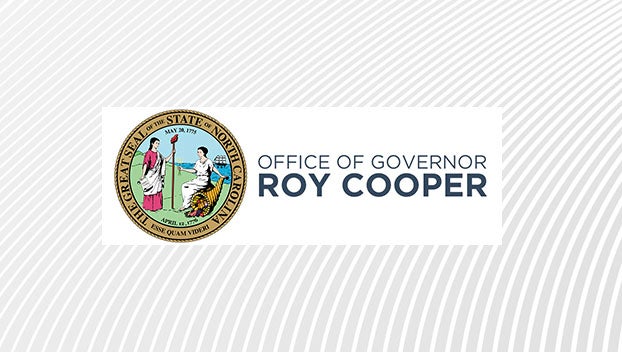Hunting funding: Capital needs abound, but not the funding to meet all those needs
Published 3:14 pm Sunday, March 15, 2015

FILE PHOTO | DAILY NEWS
NO WI-FI: Washington’s Capital Improvement Plan for the next five fiscal years does not include money to install Wi-Fi along the city’s waterfront. That decision is one of many the City Council has made and will make regarding the CIP as it looks at the budget for the next fiscal year.
Washington officials know the city’s overall Capital Improvements Plan carries an estimated price tag of $70 million. The question: where will the money to pay for the plan come from?
That question raises other funding related questions. How much grant money is available for CIP projects? Will water, sewer, stormwater and other fees have to be increased to help pay for CIP projects? Will a combination of tax dollars and grant funds help meet CIP needs? Is the response to meeting some of those needs choosing to do nothing about those needs?
The council and city staff face those questions and similar ones when it comes to deciding which CIP projects receive funding in the near future, which CIP projects will be delayed and receive funding in the distant future and which CIP projects may never receive funding.
The plan for the next five fiscal years addresses major expenditures such as new vehicles, stormwater (drainage) projects, water and sewer projects and computer hardware and software upgrades or replacements. The council decides which proposed projects receiving funding, whether a project will be completed in phases and when a project begins.
The council began making some of those decisions last week. The council reviewed numerous CIP projects, including multi-million dollar expenditures to lesser amounts in the range of $30,000.
The council voted 4-1 to remove the $30,000 project to install Wi-Fi along the Washington waterfront from the CIP. Council members Larry Beeman, Richard Brooks, Doug Mercer and Bobby Roberson voted for the removal, with council member William Pitt voting against it.
Mercer said he couldn’t justify spending $30,000 in taxpayers’ money for waterfront Wi-Fi. Mercer said the council “flatly said no to that last year” and questioned why that Wi-Fi project resurfaced this fiscal year. City Manager Brian Alligood said the city’s waterfront docks advisory committee believes Wi-Fi on the waterfront is needed to help draw boaters and others to the docks and waterfront area.
“I say no to the Wi-Fi, personally,” Mercer said.
Pitt has a different view.
“It was taken out, but I believe Wi-Fi is a vital component of the downtown community. … I firmly believe that Wi-Fi is probably the third component of economic development. So, I think we need to look at bringing that downtown to maintain that we keep our citizens downtown,” Pitt said.
Pitt said the city should search for sources that would provide the funds needed to install Wi-Fi on the waterfront, at least from the Washington-Beaufort County Chamber of Commerce building to the new dockmaster’s station. One of those sources could be AT&T, he said.
“I, personally, can’t see spending $30,000 to pacify, potentially, 25 boats,” Mercer said.
“Again, this is a public tool. It will help draw our public back downtown,” said Pitt, who believes the city’s business community would benefit from having a public Wi-Fi service downtown.
Roberson said he’s got a problem with spending $150,000 to repair the caboose next to the Peterson Building and Washington Civic Center.
“I just don’t want to spend any money on the caboose,” he said.
Alligood said he believes the city should spend money to make the caboose look nice or spend money to get rid of it. Letting it remain at its site and deteriorate should not be an option, he said.
“I’m for option two,” Roberson said.
Mercer concurs with Roberson.
The council did not reach a decision regarding the caboose last week.
As for the most costly projects, including the estimated $8 million the plan calls for spending on stormwater improvements, the council’s concern is finding ways to pay for them. Those ways could include increasing fees and/or using tax dollars.
“You either have to decide to raise stormwater fees to cover those costs for the impact on impervious surfaces or you’re going to use general-fund tax dollars to do it or you’re not going to do anything. You’re going to say, ‘I’m sorry. We’re going to have flooding issues. That’s just the way it is. We can’t afford to do anything about it.’ There’s really no magic bullet,” Alligood said.






